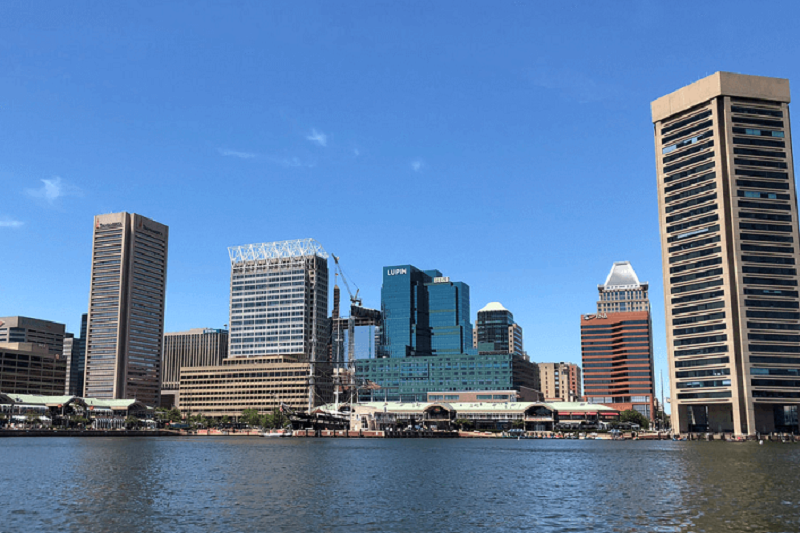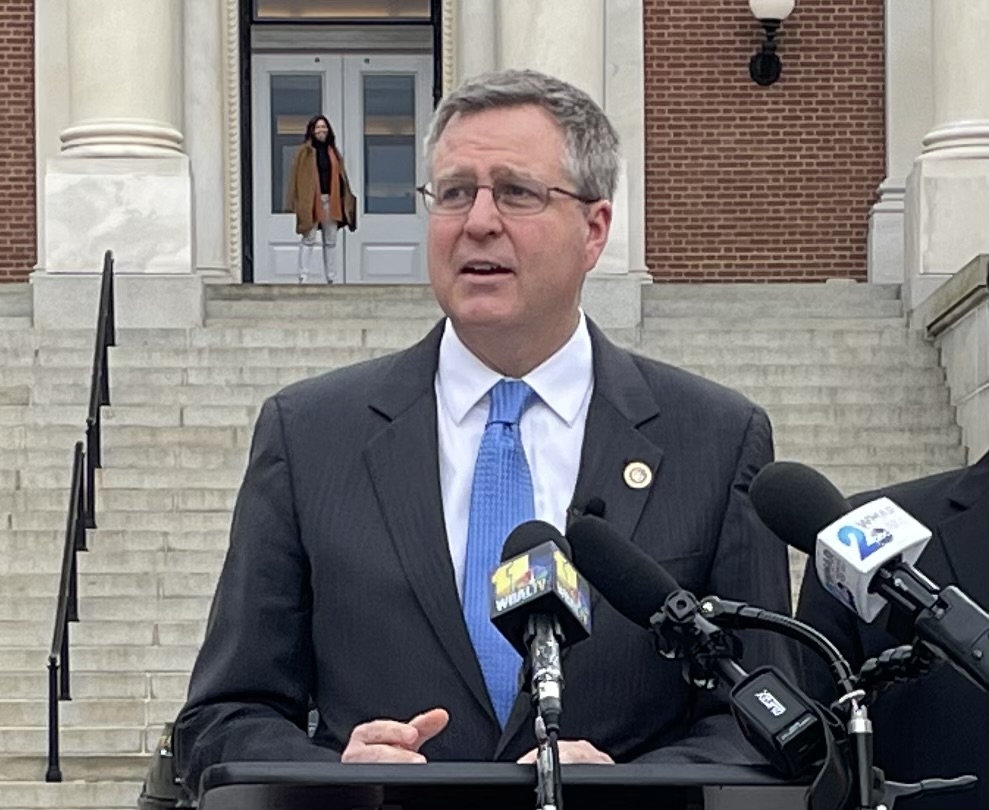Opinion: With the Right Reforms, Baltimore Can Break With Its Troubled Past

Baltimore is a charming city with a proud past. Fort McHenry and the city’s railroad network were pivotal to the nation’s victories in the War of 1812 and the Civil War. The first gas streetlamp was illuminated in “Charm City,” and the first American telegram was sent to … you guessed it, Baltimore.
But for all its successes, the city has been marred by endemic corruption and the long shadow of segregation.
It seems like, every day, new allegations surface against Baltimore officials. Kids trapped in lackluster and failing schools have few role models to turn to in City Hall, and few avenues to success in the deeply unequal city. Baltimore’s leaders can turn the page on this sorry status quo, but only by embracing the right reforms and holding city officials accountable.
Now is Baltimore’s time to shine.
While plenty of cities have their fair share of graft, Baltimore is unfortunately a nationwide leader in corruption. A recent analysis by the University of Illinois at Chicago concluded that Baltimore is the second most corrupt jurisdiction in the U.S. when accounting for federal public corruption convictions.
Plenty of examples of disgraced public officials come to mind, including ex-mayors Catherine Pugh and Sheila Dixon. Pugh’s day of reckoning came in 2019, when officials unearthed an illegal scheme where the mayor would reward purchasers of her “Healthy Holly” books with political favors. The city continues to be rocked by corruption scandals.
Baltimore city State’s Attorney Marilyn Mosby went on a traveling spree on the taxpayer’s dime, and is facing investigation from the IRS and FBI. Mosby has dealt with these allegations not by apologizing or resigning, but by calling on the Federal Communications Commission to silence her critics.
Given these issues, Baltimore residents have every right to feel like their city is failing them at every turn.
In addition, Baltimore parents are told to make do with a failing education system. It’s clear that something is deeply amiss when teachers feel pressured to push students through the system despite failing marks. All the more so when students find out that they can make the top half of the class by having a GPA above 0.13.
These findings on the education system continue to shock the conscience despite the government spending more than $15,000 per student. Surely, these resources could be better spent than they are now.
Residents of Baltimore demand better than this constant stream of failure. To turn things around, accountability needs to start at the top.
For example, city Inspector General Isabel Cumming is doing a stand-up job in holding public officials accountable. From members of the city’s civil society to state government officials, she needs more people to stand with her.
Gov. Larry Hogan’s administration should ramp up public denouncement of the corruption problem in Baltimore and steer more enforcement resources from Annapolis to Cumming’s office. More locally, figures such as Rev. Al Hathaway must have support in their crusade against corruption.
Additionally, the city government could work toward long-overdue process reforms. The Board of Estimates, which approves city funding, is a feckless group that rubber stamps spending and conducts very little oversight.
In a strange move, the Board of Estimates deferred a vote on May 19 to bring more transparency to travel by city officials, “Under the new proposed guidelines, all travel costing more than $100 paid for in whole or in part by a third party must receive board approval, and travel lasting more than a week must all be approved.” This should have been an easy vote.

Ross Marchand
In January 2020, then-city council president (now mayor) Brandon Scott wanted to revamp the Board of Estimates. In a news release he stated, “The public has entrusted us to do the work of cleaning up city government so that we have a governmental structure that is less prone to corruption, more efficient, and more supportive of our local communities. Reducing the Board of Estimates to the three elected members, all with equal weight to approve or reject City contracts involving taxpayer dollars, is one way we can do that.”
Leadership starts at the top, and Scott should move forward with his plan for the Board of Estimates reform.
Baltimore’s leadership can also immediately improve their credibility by tackling corruption within their ranks and striving to give the city’s children a better future. Part of the struggle is spending the $360 million in city support for Baltimore schools in a way that gives families more choices at an affordable cost. City leaders should seriously examine proposals that would enable parents to use education tax dollars for private alternatives to failing city schools.
As Florida’s experience with education tax credits shows, these programs can actually result in better outcomes for public schools. Even within the public school system, city leaders ought to reevaluate funding priorities.
Baltimore Brew contributor Edward Ericson Jr. notes, “Basic jobs like putting a new roof on Roland Park Elementary School were needlessly complicated and then hopelessly botched [with a price tag in the millions of dollars], after which school administrators attempted to cover up the errors.” Ericson documents a host of other problems, including corruption in school maintenance contracts and the misallocation of engineer hiring funds.
Auditing this spending with greater depth and more regularity can go a long way toward a smarter education system.
Baltimore has plenty of problems. But with greater reform and accountability, Baltimore can reinvent herself and charge forward toward a better future.
–ROSS MARCHAND
The writer is a senior fellow at the Taxpayers Protection Alliance.





 Creative Commons Attribution
Creative Commons Attribution